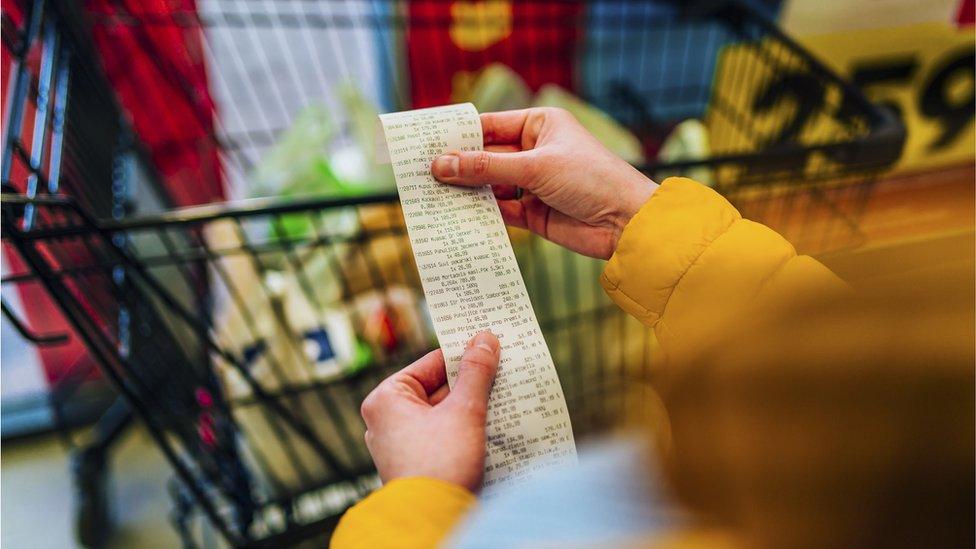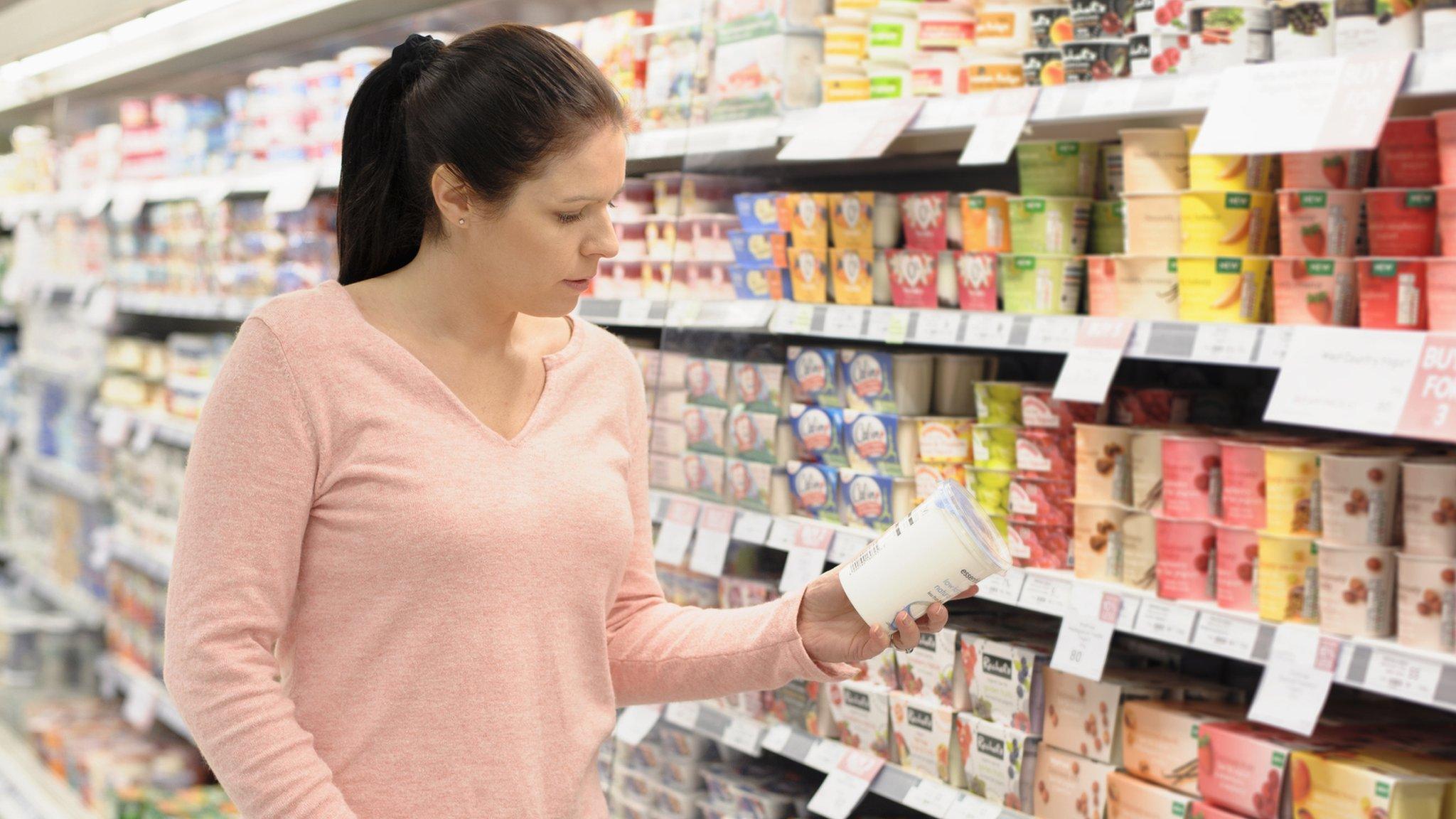Plans for supermarket price cap on basic food
- Published

The government is discussing plans for supermarkets to introduce a cap on the price of basic food items to help tackle the rising cost of living.
A voluntary agreement with major retailers could see price reductions on basic food items like bread and milk.
Food prices rose by 19.1% in the year to April - its second highest rate in 45 years., external
Downing Street sources have stressed that there are no plans for a mandatory price cap.
The idea of a cap or freeze on basic food items, as first reported by the Daily Telegraph, external, is said to be at the "drawing board stage".
Supermarkets are expected to be allowed to select which items they would cap and only take part in the initiative, modelled on a similar agreement in France, on a voluntary basis.
Health Secretary Steve Barclay told BBC One's Sunday with Laura Kuenssberg programme that "this is about having constructive discussions with supermarkets about how we work together, not about any element of compulsion".
He added that the government was also keen to protect "suppliers who themselves face considerable pressures".
For Labour, shadow work and pensions secretary Jonathan Ashworth told the same programme that the reports were "extraordinary", saying "Rishi Sunak is now like a latter day Edward Heath with price controls".
However there is some doubt over what impact a price cap of food will have.
The British Retail Consortium says that the government should focus more on cutting red tape rather than "recreating 1970s-style price controls".
"This will not make a jot of difference to prices. High food prices are a direct result of the soaring cost of energy, transport, and labour, as well as higher prices paid to food manufacturers and farmers," said Andrew Opie, director of food and sustainability at the BRC.
"As commodity prices drop, many of the costs keeping inflation high are now arising from the muddle of new regulation coming from government.
Rather than recreating 1970s-style price controls, the government should focus on cutting red tape so that resources can be directed to keeping prices as low as possible."
Earlier this week the boss of the Sainsbury's denied that his supermarket had been profiteering.
Simon Roberts said his business was "absolutely not" putting prices up to bolster profits - known as "greedflation".
He told the BBC that Sainsbury's and other grocery chains had spent money to "battle inflation" and avoid passing all of the rising costs onto consumers.
The competition watchdog, the Competition and Markets Authority, has said it will look at how the grocery market is operating.
At a meeting with food manufacturers last week the chancellor Jeremy Hunt stressed widespread concern about prices and agreed to engage with the industry on possible measures to ease pressure on household budgets.
Mr Hunt has said he would back an increase in interest rates if it curbed higher prices and soaring inflation - even if that risked plunging the UK into recession.
"Businesses don't have a price cap like consumers do and yet some smaller businesses buy energy like consumers do so it's been really hard for them to keep going," Shevaun Haviland, director general of the British Chamber of Commerce, told the same programme.
The rate of inflation can be calculated in various ways, but the main measure is the Consumer Prices Index (CPI) - which tracks the prices of everyday items in an imaginary "basket of goods".
The last figure for CPI was 8.7% in the year to April, down from 10.1% in March and 11.1% in October.
Soaring prices of some food products has meant inflation has not come down by as much as many predicted.
Experts have warned that expensive food is set to overtake energy bills as the "epicentre" of the cost-of-living crisis.
Related topics
- Published22 May 2023
